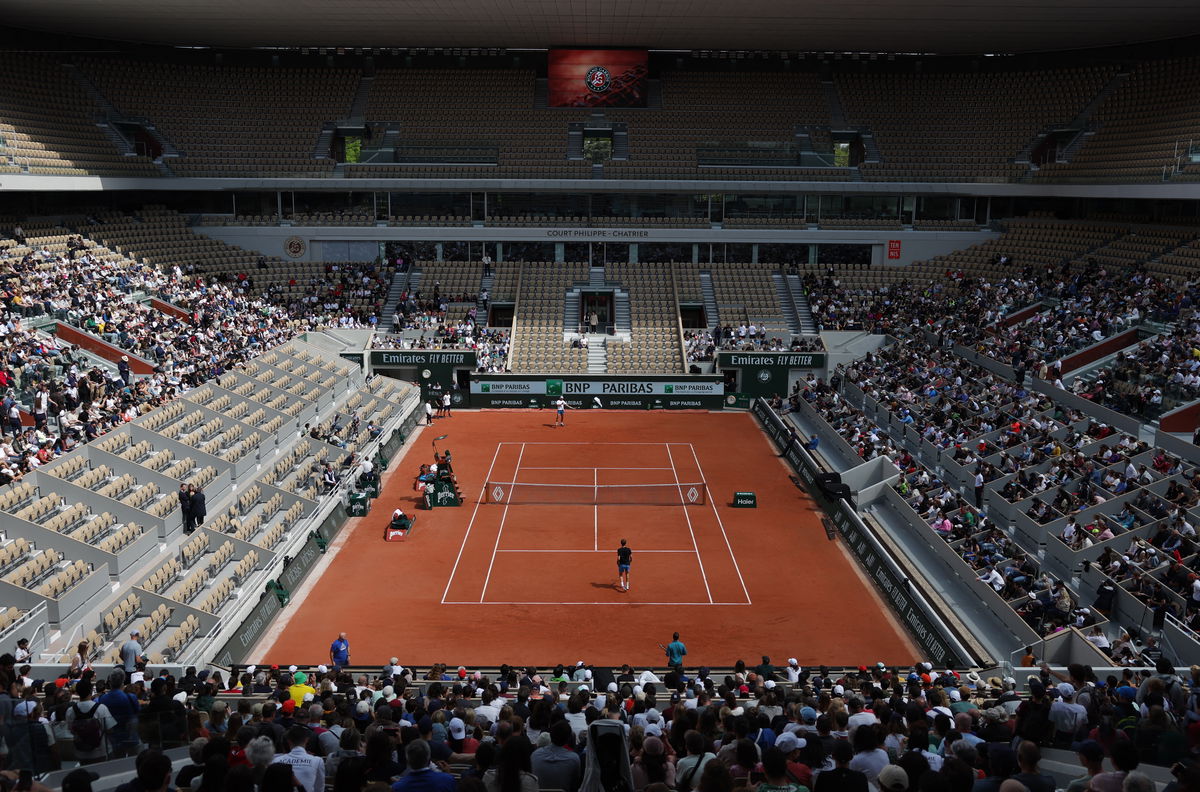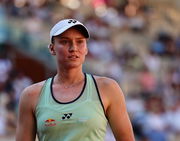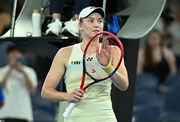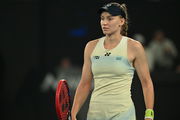
Reuters
Tennis – French Open Preview – Roland Garros, Paris, France – May 21, 2024 General view of Spain’s Rafael Nadal during a practice session ahead of the French Open REUTERS/Gonzalo Fuentes

Reuters
Tennis – French Open Preview – Roland Garros, Paris, France – May 21, 2024 General view of Spain’s Rafael Nadal during a practice session ahead of the French Open REUTERS/Gonzalo Fuentes
The 2025 French Open is now over, with both Carlos Alcaraz and Coco Gauff exiting Charles de Gaulle a couple trophies heavier. But this year’s tournament had its fair share of controversial moments, two excellent singles finals aside. For example, when Novak Djokovic was forced to play at Suzanne-Lenglen instead of Court Philippe-Chatrier, quite a few eyebrows were raised. Then, some players also looked annoyed with the crowd’s behavior during the tournament. But the controversy that stood tall among them was the organizers facing the backlash from the players due to the lack of women’s matches being scheduled for the night session, spearheaded by Ons Jabeur. However, amid all these controversies, the French Open made a revolutionary move when it came to umpiring. What is it?
Watch What’s Trending Now!
If we take a look at the complaints by the WTA stars surrounding the scheduling issues at the French Open, Tunisian star Ons Jabeur was the most vocal on this topic. Since the launch of its night format in 2021, the French Open has promoted the evening session, a singles match scheduled at 8:15 pm local time, as the highlight of each day’s play. But interestingly, of the 52-night sessions held since its commencement, only four of them have been women’s matches. In 2025, the number was zero.
In turn, Ons Jabeur criticized the scheduling for women’s players getting snubbed from the prime-time night session at Philippe-Chatrier. She said, “I hope whoever is making the decision (on scheduling), I don’t think they have daughters, because I don’t think they want to treat their daughters like this. It’s a bit ironic. They don’t show women’s sport, they don’t show women’s tennis, and then they (say), ‘Yeah, but mostly they watch men.’ Of course, they watch men more because you show men more. Everything goes together.”
ADVERTISEMENT
Later on, Coco Gauff added on to the Tunisian’s words by saying, “I feel like we produce some high-quality tennis, and we have some great stars on the women’s side who fans, I’m sure, would love to see.”
Even the world No. 1, Aryna Sabalenka, said, “There was a lot of, like, great battles, a lot of great matches which would be cool to see as night sessions. Just more people in the stands watching these incredible battles. And just to show ourselves to more people. I definitely agree that we deserve to be put on a bigger stage. Like better timing, more people watching.”
Amid the flurry of criticisms, the French Open organizers did make a groundbreaking decision by introducing five female officials for the Roland Garros finals, for the first time ever. Eva Asderaki officiated the men’s singles, Marijana Veljovic did the women’s singles, men’s doubles was officiated by Aurelie Tourtle, women’s doubles by Miriam Bley, and lastly the mixed doubles by Lara Morgan.
ADVERTISEMENT
All 5 @rolandgarros finals were umpired by female officials, first time in a history:
Men’s singles – Eva Asderaki
Men’s doubles – Aurélie Tourte
Women’s singles – Marijana Veljovic
Women’s doubles – Miriam Bley
Mixed doubles – Lara Morgan— Gabriela Zaloga (@gabrikoz) June 8, 2025
But as Ons Jabeur has pointed out, there’s still a long way to go to before true equality is achieved. Jabeur also shared a lengthy social media post saying, “When a woman wins 6-0, 6-0, it’s called boring. Too easy. When a man does it? That’s ‘dominance.’ ‘Strength.’ ‘Unstoppable.’ When women play with power, they’re told they ‘play like men.’ As if strength, speed, or aggression don’t belong in a woman’s game. If they celebrate, they’re dramatic. If they don’t, they’re cold. Too emotional. Too distant. Too loud. Too quiet. Too much. Never just right. And yet, the game keeps rising.”
ADVERTISEMENT
She further added, “No one’s denying the greatness in men’s tennis, the fierce battles, the legacies, the magic under pressure. But honoring one side of the sport shouldn’t mean ignoring the other. The women’s game has been writing its own legacy loudly, brilliantly, and for far too long without full recognition.”
A lot of players like Jabeur raised their voices during the French Open, but did the organizers say anything about the subject, though?
ADVERTISEMENT
French Open tournament director Amelie Mauresmo’s reply to the scheduling controversy
After seeing all the buzz surrounding this topic, Mauresmo came up with a strong message claiming, “It has never been that the girls are not worthy to play at night. It’s never been this. I will not accept that you carry this message. That’s really clear to me. What I’m saying is I’m talking and we are talking, because I’m not the only one to make the decisions about potential match length.”
Interesting Fact: The last women’s singles match to be played in the night session at Court Philippe Chatrier was a fourth-round match between Aryna Sabalenka and Sloane Stephens on June 4, 2023.
Top Stories
How Much Did Aryna Sabalenka’s Australian Open Jewelry Cost? Designer and Materials Explained

Is Elena Rybakina Dating? All You Need To Know About WTA Star’s Boyfriend

Breaking: Elena Rybakina Takes Down Aryna Sabalenka in Australian Open Final

Who Are Elena Rybakina’s Parents & Siblings? Everything to Know About WTA Star’s Family

Elena Rybakina’s Coach Slammed as Australian Open Final Tension Boils Over: “So Gross”

She emphasized that the choice to schedule men’s matches in the evening sessions rather than the women’s was purely based on the format difference, i.e., best-of-five sets for men and best-of-three for women. So, according to the French Open director, “It’s the length of the matches, not the level they reach.“
ADVERTISEMENT
After seeing these comments, the WTA spokesperson issued a statement saying that the WTA encourages all combined tournaments to provide a balanced match schedule that showcases both women’s and men’s tennis, and also in the premium slot. According to the French Open president, Gilles Moretton, the decision was mainly based on the fact of putting the “best match” at night. Amid all this chaos surrounding the scheduling at the French Open, do you think the introduction of five female officials is a good move from the tournament organizers?
ADVERTISEMENT
ADVERTISEMENT
ADVERTISEMENT
